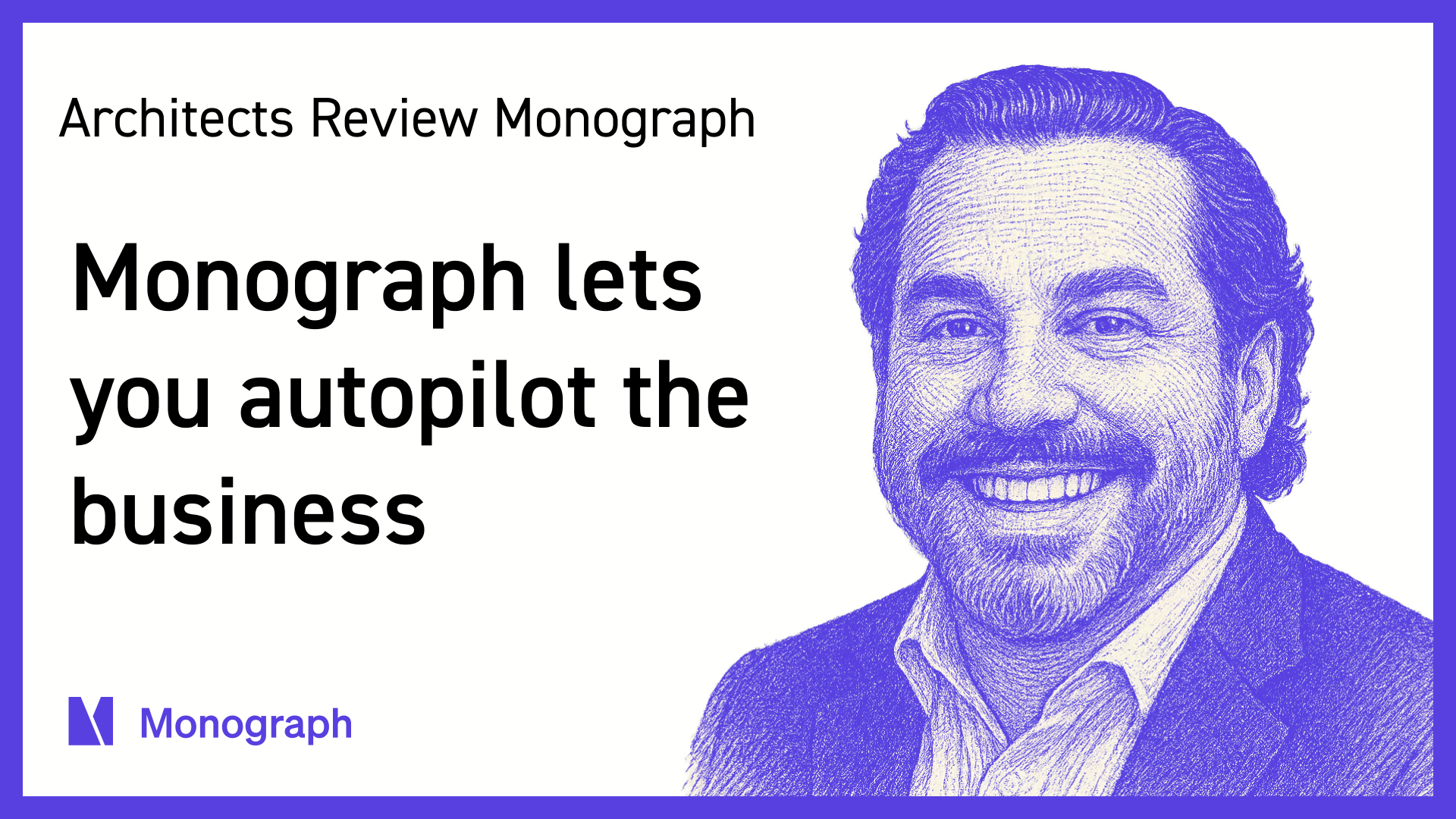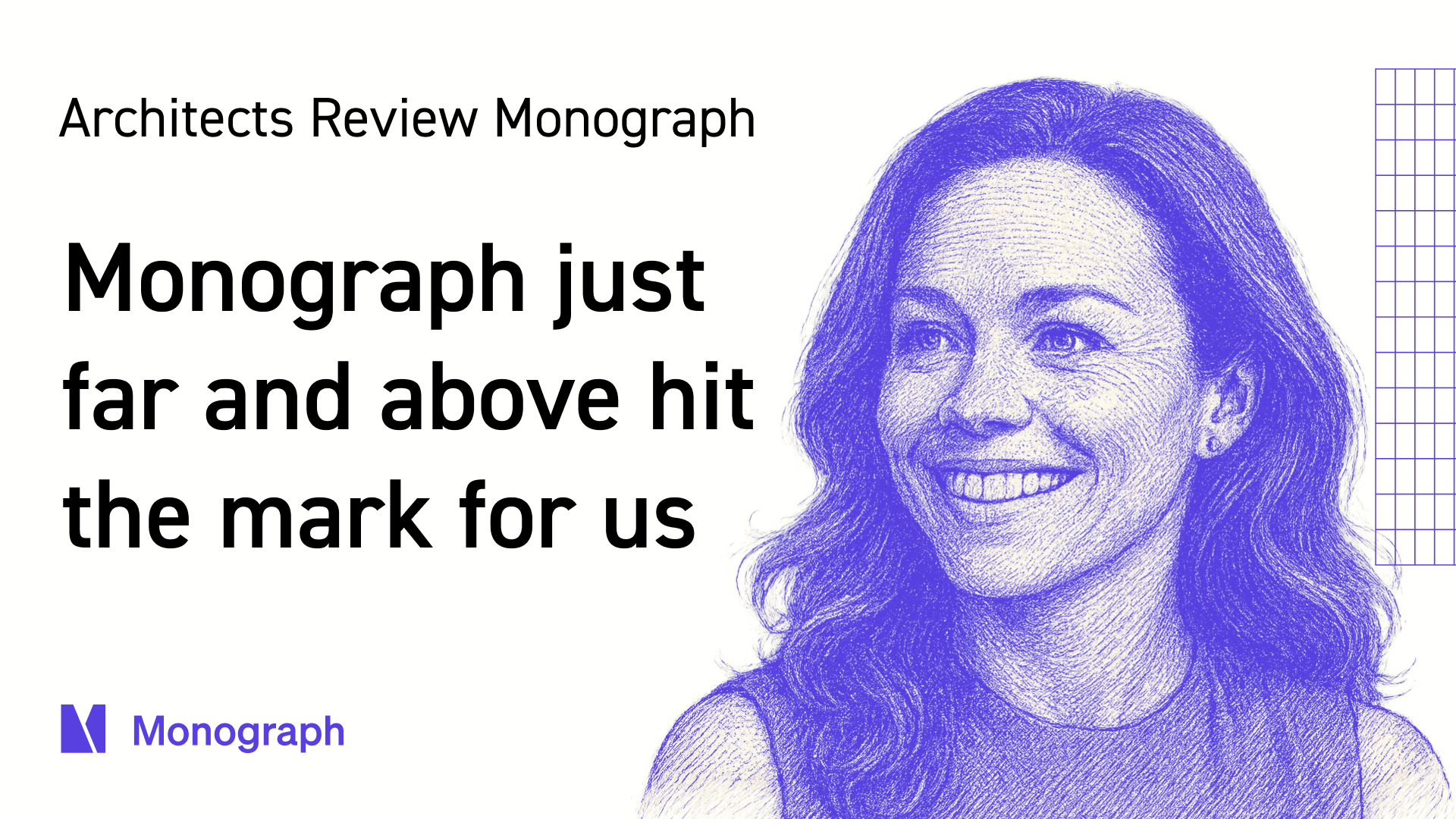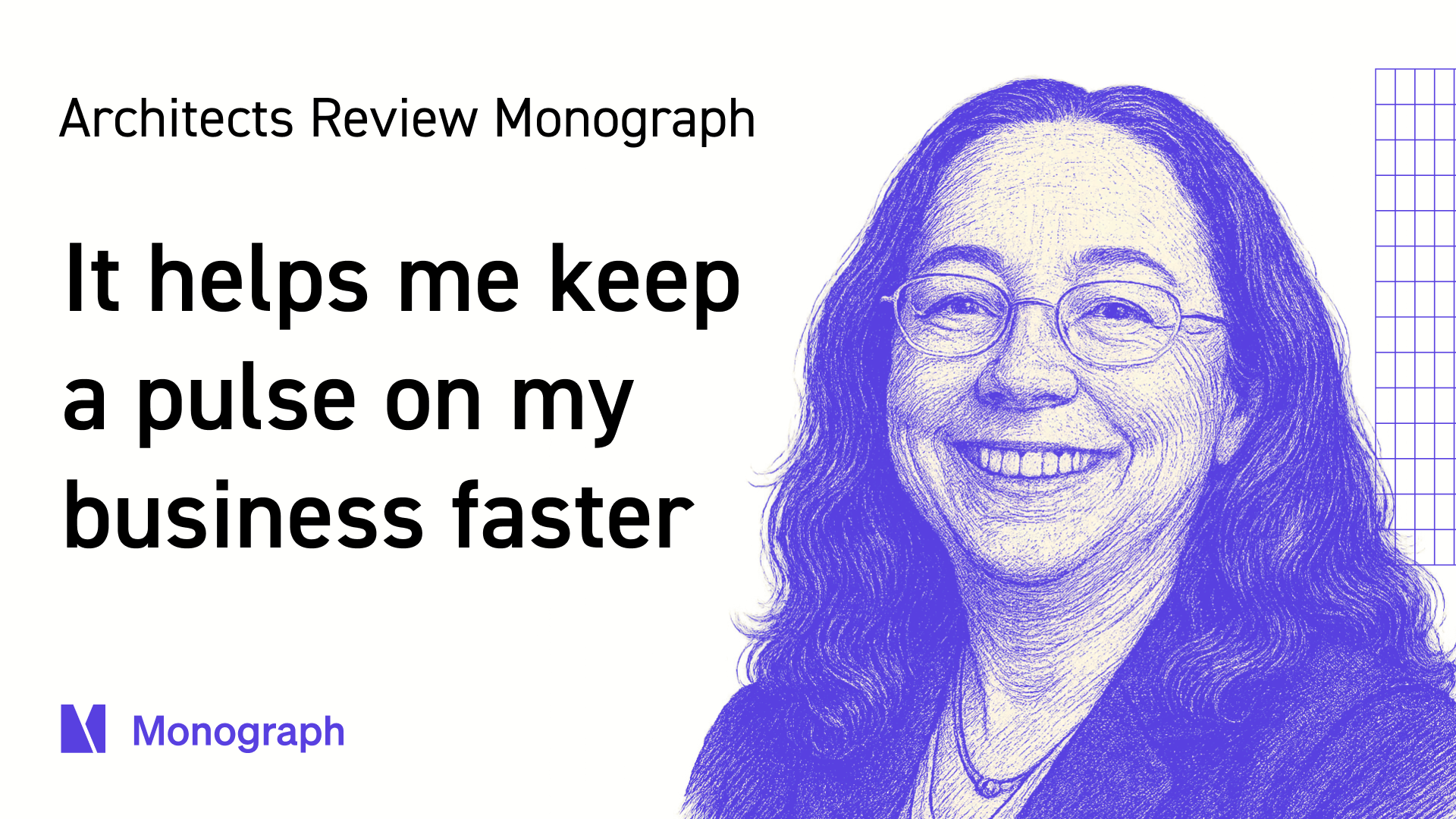Contents
Firm profile
Workbench is more than an architecture firm; it’s even more than a design-build firm. With three teams in-house—development, design, and construction—Workbench takes projects from concept to completion with 30 staff members. Guided by a commitment to advocating for what they believe in, holding a growth mindset, and prioritizing the health and well-being of their team, they sought a solution that could simplify their operations and align with these values.

Challenges with budget transparency and staffing
Before switching to Monograph, Workbench faced critical issues with budget transparency and staffing inefficiencies. Their previous tools, including BQE Core, Excel, and Smartsheets, made it difficult to track project budgets in real time, leaving team members without the data needed to stay on top of time and costs. This lack of visibility created bottlenecks, with much of the financial oversight falling to the principal or accounting team.
Staffing was equally challenging. Workbench relied on inconsistent meetings and outdated spreadsheets to manage workloads. Adjusting staff assignments was a slow and manual process, making it difficult to respond quickly when projects fluctuated in size or schedule. This led to overburdened team members and missed opportunities to optimize resources.
The absence of reliable systems not only amplified inefficiencies but also strained client relationships. Without clear insights into progress, projects sometimes exceeded budgets, forcing uncomfortable after-the-fact discussions about additional fees. Workbench needed a better way to stay ahead of issues and communicate proactively with clients.
"We struggled for a long time with programs that didn’t give our team the information they needed to effectively plan their project’s time management and quickly see if they were staying on track with both time and costs."
—Jamileh Cannon, Founding Principal Architect, Workbench

Inefficiencies affected team and clients
Disjointed systems and manual processes were holding Workbench back. Staffing meetings, held every other week, lacked accurate data, making it hard to reallocate workloads efficiently. Employees had to guess how busy they were, while principals juggled spreadsheets to track progress across 30 projects.
This inefficiency trickled down to clients. Without visibility into budgets and schedules, Workbench risked exceeding client-approved fees. For a firm that bills much of its work hourly, this created financial uncertainty and unnecessary stress. Proactive communication with clients was hindered, often leaving both parties scrambling to address budget overages after the fact.
Their previous systems, including BQE Core, failed to address these gaps. Despite its advertised capabilities, BQE Core’s interface was clunky and unintuitive, leading to reliance on supplemental tools like Excel and Smartsheets. Workbench found themselves investing more time into managing their systems than into their actual projects, creating a clear need for a change.
"Switching to Monograph was part of a continual effort to streamline everything that we can possibly streamline in the business because the work itself is so complicated."
—Jamileh Cannon, Founding Principal Architect, Workbench

Monograph simplified operations
Switching to Monograph was part of a broader effort to simplify operations and empower the team with real-time insights. Once Monograph introduced its staffing feature, it became clear that the platform could replace Workbench’s patchwork of tools with a single, intuitive system.
After the transition, the results were immediate and measurable. Billing time dropped from 20–25 hours a month to just 5 hours. Staffing adjustments, which previously took days, now required only 1–2 hours. Unbilled fees due to overages shrank from over 20% to less than 5% monthly. Monograph provided transparency into project budgets, enabling proactive client communication and fewer budget overruns.
Weekly staffing meetings became more efficient, taking just 30 minutes with clear data from Monograph. Team members gained clarity on their weekly workloads and project budgets, while principals used Monograph to forecast staffing needs and write more accurate proposals. For Workbench, the platform wasn’t just a tool—it was a turning point in how they operated.
"We’ve seen a huge downturn in the number of projects that were over budget on, or where we didn’t ask for an add service. So from just the financial health of the business, that is huge."
—Jamileh Cannon, Founding Principal Architect, Workbench
Beautiful design, better operations
Beyond the expected improvements, Workbench experienced several surprising benefits. Monograph’s customer service stood out, offering responsive support and making the firm feel heard when suggesting new features. This level of attention gave the team confidence in the platform and its future developments.
Monograph’s clean and visually appealing interface resonated deeply with Workbench. As architects, they value beautiful design, and Monograph delivered both functionality and aesthetics. The platform’s reporting capabilities also exceeded expectations. Whether generating specific data views or pulling custom reports, the process was seamless and intuitive.
These benefits aligned with Workbench’s core values of advocating for what they believe in, maintaining a growth mindset, and prioritizing the well-being of their team. With Monograph, the firm transformed its operations while creating a more collaborative and supportive environment for their staff.
"It’s beautiful to look at and it’s fun to use! We are architects, so of course we want our data to be beautiful. And the customer service is amazing. We feel like we have a direct help line and if there are new tools we’d like to see we feel like our voice is heard."
—Jamileh Cannon, Founding Principal Architect, Workbench

Monograph didn’t just streamline Workbench’s operations—it transformed the way they work. By cutting unbilled fees by 75%, slashing time spent on billing and staffing, and giving their team clarity into budgets and workloads, Workbench has more time to focus on what truly matters: designing and building exceptional projects.
If your firm is ready to trade inefficiency and guesswork for clarity and control, Monograph is the intuitive, A&E-specific platform you’ve been waiting for.
Ready to see it in action? Get started now!


